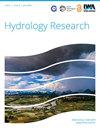A review on sources of uncertainties for groundwater recharge estimates; insight to data Scares Tropical, Arid, and Semiarid regions
IF 2.4
4区 环境科学与生态学
Q2 WATER RESOURCES
引用次数: 0
Abstract
Successful sustainable groundwater management requires accurate information on recharge for a given aquifer system. However, recharge estimates are usually used in a relative term rather than an absolute sense. A review of available studies on groundwater recharge estimate uncertainty as well as tools for uncertainty analysis was conducted. Nonetheless, except for the handful research that have conducted proper uncertainty analysis, most studies inclined to implement multiple methods as an indication of the range of uncertainty. The global trend indicates that considering the significant number of methods for recharge estimation, very little has been done to assess the uncertainty of each method. Therefore, more focus should be given to the individual uncertainty analysis of selected methods as much as using multiple methods recommended for investigating uncertainty. Insight of the review indicates, when used carefully, that tracer-based analysis can be effective and coupling is required for uncertainty analysis. Furthermore, spatial uncertainty due to input data could be potentially minimized by using input data from multiple sources. Better conceptualization of the hydrogeological process can reduce the uncertainty of numerical modelling. This review is limited to widely used methods and excludes uncertainty due to inappropriate method implementation as well as controlled experimental uncertainties.关于地下水补给估算不确定性来源的综述;对热带、干旱和半干旱地区数据的见解
成功的可持续地下水管理需要关于特定含水层系统补给量的准确信息。然而,补给估算通常是相对意义上的,而不是绝对意义上的。我们对有关地下水补给估算不确定性的现有研究以及不确定性分析工具进行了审查。然而,除了少数研究进行了适当的不确定性分析外,大多数研究倾向于采用多种方法来表示不确定性的范围。全球趋势表明,考虑到有大量的补给估算方法,但很少有人对每种方法的不确定性进行评估。因此,应更加重视对所选方法的个别不确定性分析,而不是使用建议的多种方法来调查不确定性。审查结果表明,在谨慎使用的情况下,基于示踪剂的分析是有效的,不确定性分析需要耦合。此外,通过使用多种来源的输入数据,有可能将输入数据造成的空间不确定性降至最低。对水文地质过程进行更好的概念化可以减少数值模拟的不确定性。本综述仅限于广泛使用的方法,不包括因方法实施不当以及受控实验不确定性造成的不确定性。
本文章由计算机程序翻译,如有差异,请以英文原文为准。
求助全文
约1分钟内获得全文
求助全文
来源期刊

Hydrology Research
WATER RESOURCES-
CiteScore
5.00
自引率
7.40%
发文量
0
审稿时长
3.8 months
期刊介绍:
Hydrology Research provides international coverage on all aspects of hydrology in its widest sense, and welcomes the submission of papers from across the subject. While emphasis is placed on studies of the hydrological cycle, the Journal also covers the physics and chemistry of water. Hydrology Research is intended to be a link between basic hydrological research and the practical application of scientific results within the broad field of water management.
 求助内容:
求助内容: 应助结果提醒方式:
应助结果提醒方式:


